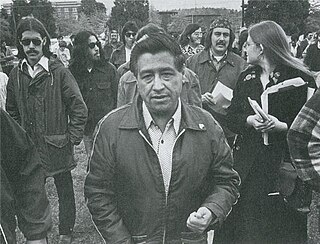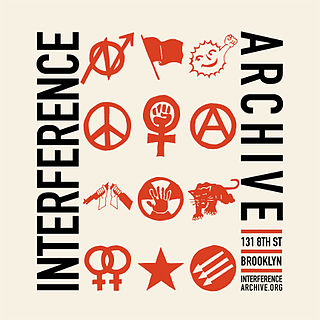
The University of Colorado Boulder is a public research university in Boulder, Colorado, United States. Founded in 1876, five months before Colorado became a state, it is the flagship university of the University of Colorado system. CU Boulder is a member of the Association of American Universities and is classified among R1: Doctoral Universities – Very high research activity.
New media are communication technologies that enable or enhance interaction between users as well as interaction between users and content. In the middle of the 1990s, the phrase "new media" became widely used as part of a sales pitch for the influx of interactive CD-ROMs for entertainment and education. The new media technologies, sometimes known as Web 2.0, include a wide range of web-related communication tools such as blogs, wikis, online social networking, virtual worlds, and other social media platforms.
Electronic civil disobedience can refer to any type of civil disobedience in which the participants use information technology to carry out their actions. Electronic civil disobedience often involves computers and the Internet and may also be known as hacktivism. The term "electronic civil disobedience" was coined in the critical writings of Critical Art Ensemble (CAE), a collective of tactical media artists and practitioners, in their seminal 1996 text, Electronic Civil Disobedience: And Other Unpopular Ideas. Electronic civil disobedience seeks to continue the practices of nonviolent-yet-disruptive protest originally pioneered by American poet Henry David Thoreau, who in 1848 published Civil Disobedience.

Youth activism is the participation in community organizing for social change by persons between the ages of 15–24. Youth activism has led to a shift in political participation and activism. A notable shift within youth activism is the rise of “Alter-Activism” resulting in an emphasis on lived experiences and connectivity amongst young activists. The young activists have taken lead roles in public protest and advocacy around many issues like climate change, abortion rights and gun violence.
Internet activism involves the use of electronic-communication technologies such as social media, e-mail, and podcasts for various forms of activism to enable faster and more effective communication by citizen movements, the delivery of particular information to large and specific audiences, as well as coordination. Internet technologies are used by activists for cause-related fundraising, community building, lobbying, and organizing. A digital-activism campaign is "an organized public effort, making collective claims on a target authority, in which civic initiators or supporters use digital media." Research has started to address specifically how activist/advocacy groups in the U.S. and in Canada use social media to achieve digital-activism objectives.

Slacktivism is the practice of supporting a political or social cause by means such as social media or online petitions, characterized as involving very little effort or commitment. Additional forms of slacktivism include engaging in online activities such as "liking," "sharing," or "tweeting" about a cause on social media, signing an Internet petition, copying and pasting a status or message in support of the cause, sharing specific hashtags associated with the cause, or altering one's profile photo or avatar on social network services to indicate solidarity.

Media activism is a broad category of activism that utilizes media and communication technologies for social and political movements. Methods of media activism include publishing news on websites, creating video and audio investigations, spreading information about protests, or organizing campaigns relating to media and communications policies.
Netroots is a term coined in 2002 by Jerome Armstrong to describe political activism organized through blogs and other online media, including wikis and social network services. The word is a portmanteau of Internet and grassroots, reflecting the technological innovations that set netroots techniques apart from other forms of political participation. In the United States, the term is used mainly in left-leaning circles.

Civic engagement or civic participation is any individual or group activity addressing issues of public concern. Civic engagement includes communities working together or individuals working alone in both political and non-political actions to protect public values or make a change in a community. The goal of civic engagement is to address public concerns and promote the quality of the community.

The Chicano Movement, also referred to as El Movimiento, was a social and political movement in the United States that worked to embrace a Chicano/a identity and worldview that combated structural racism, encouraged cultural revitalization, and achieved community empowerment by rejecting assimilation. Chicanos also expressed solidarity and defined their culture through the development of Chicano art during El Movimiento, and stood firm in preserving their religion.
Grassroots Campaigns, Inc. is a for-profit corporation that does strategic consulting, and fund raising for humanitarian and progressive causes and political organizations. Grassroots Campaigns employs thousands of workers to generate small-donor contributions, increase visibility, and expand the membership base for a number of progressive groups, issues, and campaigns. Headquartered in Boston, Massachusetts, the company was founded in December 2003 by a small team of experienced organizers who specialized in grassroots-level political and public interest organizing with groups like the Public Interest Research Group However, since its founding, it has consistently faced accusations of anti-union activity at odds with its stated progressive roots.
Disaboom was a social networking service for people with disabilities, as well as their family members, friends, caregivers, and employers.

Linda Goode Bryant is an African-American documentary filmmaker and activist. She founded the gallery Just Above Midtown (JAM), which was the focus of an exhibition at the Museum of Modern Art in the fall of 2022, organized by curator Thomas Lax.

The term digital citizen is used with different meanings. According to the definition provided by Karen Mossberger, one of the authors of Digital Citizenship: The Internet, Society, and Participation, digital citizens are "those who use the internet regularly and effectively." In this sense, a digital citizen is a person using information technology (IT) in order to engage in society, politics, and government.

Activism consists of efforts to promote, impede, direct or intervene in social, political, economic or environmental reform with the desire to make changes in society toward a perceived greater good. Forms of activism range from mandate building in a community, petitioning elected officials, running or contributing to a political campaign, preferential patronage of businesses, and demonstrative forms of activism like rallies, street marches, strikes, sit-ins, or hunger strikes.
Internet-nationalism is nationalism which bases its activity on the Internet. Cyber-nationalism has different aspects, which may help the government as a part of the propaganda. As a social phenomena, cyber-nationalism is nationalistic groups who are gathering on the internet. They often perform offensive actions against other countries, such as hacking and trying to affect elections. This phenomenon can be found in several countries such as Japan, Russia, and China.
Online social movements are organized efforts to push for a particular goal through the use of new communications and information technologies, such as the Internet. In many cases, these movements seek to counter the mainstream public, claiming there is a wrong that should be righted. Online social movements have focused on a broad range on social and political issues in countries all around the world.

The CU Independent is the student-run news publication for the University of Colorado Boulder. It has been digital-only since 2006, when it became one of the first major college newspapers to drop its print edition.

Interference Archive is a volunteer-run library, gallery, and archive of historical materials related to social and political activism and movements. Located in the Park Slope neighborhood of Brooklyn, New York City, at 314 7th Street, with in the zip code 11215, its mission is "to explore the relationship between cultural production and social movements."

David Fair is an American activist who has been a leader in the labor, LGBT, AIDS, homeless and child advocacy movements in Philadelphia, PA since the 1970s. He has founded or co-founded several advocacy and service organizations, including the Philadelphia Lesbian and Gay Task Force (1977), the Philadelphia Gay Cultural Festival (1978), Lavender Health (1979), the Philadelphia/Delaware Valley Union of the Homeless (1985), Philly Homes 4 Youth (2017), and the Philadelphia Coalition on Opioids and Children (2018), and led the creation of numerous local government health and human service initiatives, including the AIDS Activities Coordinating Office for the Philadelphia Department of Public Health (1987) and the Division of Community-Based Prevention Services (2001), the Parenting Collaborative (2003), and the Quality Parenting Initiative (2014) for the Philadelphia Department of Human Services.












